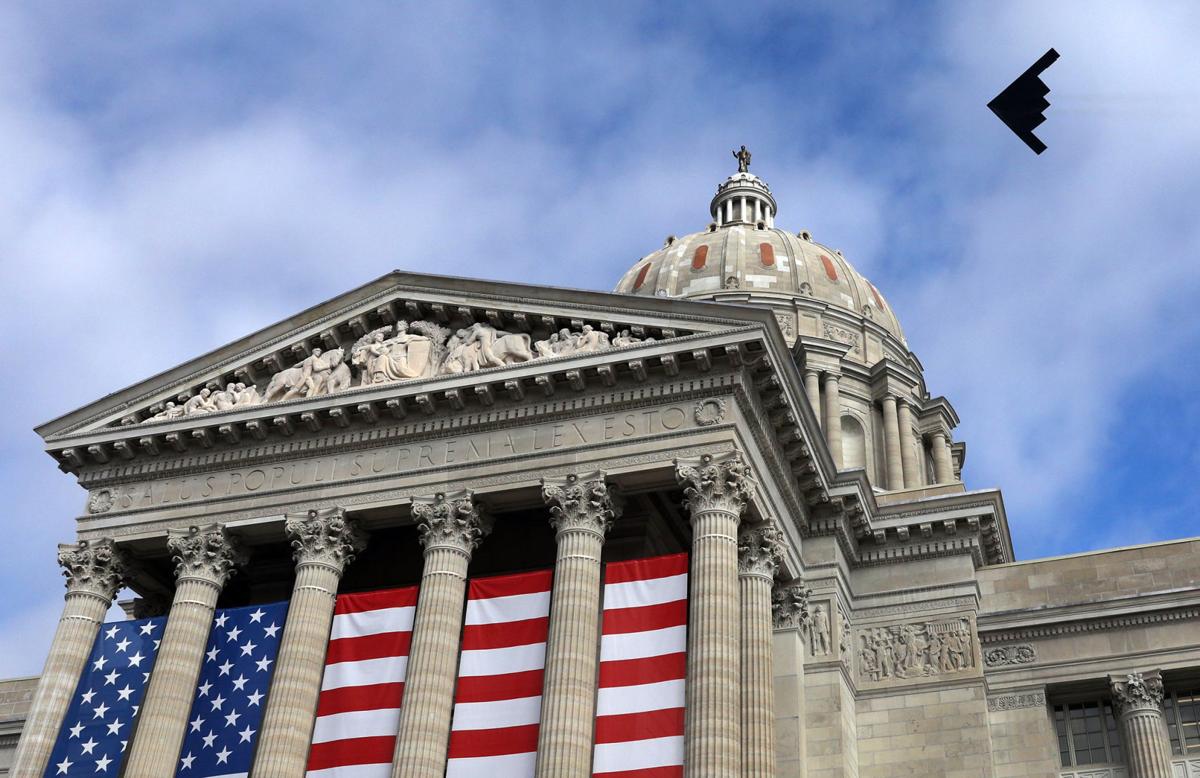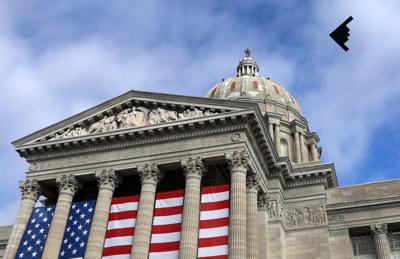JEFFERSON CITY â The Missouri House delivered a nearly $51 billion spending plan to the Senate Thursday, setting up a showdown over funding for schools, roads and welfare programs for the fiscal year beginning July 1.
As expected, the chief budget writer in the Senate said changes to the proposal are coming, including a different approach to transportation projects and potentially more funding for the stateâs universities and community colleges.
âWe have considerable work to do in the next four weeks,â said Senate Appropriations Committee Chairman Lincoln Hough, R-Springfield.
The clock is ticking on the Senate to approve its version of the spending plan in order to finalize the package by a May 10 deadline.
Among changes expected to emerge in the Legislatureâs upper chamber is a restoration of Gov. Mike Parsonâs request to boost spending on higher education by 3%.
People are also reading…
Under the House plan, lawmakers reduced Parsonâs request for colleges to a 2% bump, which critics said doesnât account for inflationary increases facing the institutions.
âThe appetite over here is to go back to the governorâs recommendation of 3%,â Hough said following the House passage of the spending proposal.
The package includes nearly $4 billion for schools through a funding formula and provides full funding for school transportation costs.
The plan leaves Parsonâs budget proposal on teacher pay intact. Base salary for teachers would rise to $40,000, up from the current national low of $25,000. The cost is about $4 million.
Not everyone was pleased with the increases.
âIâm grateful we have a fully funded foundation formula. But that is really the baseline of what we should be funding our schools at,â said Rep. Peter Merideth, D-51șÚÁÏ, who is the ranking minority member of the House Budget Committee. âItâs a formula that hasnât kept up with inflation for 50 years.â
The House plan dedicates $727 million to improve Interstate 44. In addition, $100 million will go to repair rural roads across the state.
âIâm very proud of the product weâve put together,â said Rep. Bill Owen, R-Springfield.
Rep. Deb Lavender, D-Manchester, drew jeers from Republicans when she credited President Joe Biden for providing federal dollars to help Missouri improve its transportation network.
âThank you, Joe,â Lavender said.
Although state tax revenues are flattening, Missouri still has a $6 billion surplus that was built up when federal pandemic relief dollars were flowing into the treasury.
The House blueprint reduces the proposal made by Parson in January by about $2 billion. Among items cut by the House is a nearly $53 million plan to redevelop the mostly abandoned Missouri State Penitentiary in Jefferson City as a tourist site.
The House version also reduces by more than $574 million the amount Parson had sought for the stateâs Medicaid program, which provides health insurance to low-income Missourians.
House Budget Committee Chairman Cody Smith, R-Carthage, said an ongoing project to purge people who no longer qualify for the insurance shows less can be spent because fewer will be receiving the benefit.
âWe were able to make significant reductions there,â said Smith, who is running for state treasurer.
State workers will see a 3.2% salary boost under the House plan.
Raises also could be coming for employees who work for private agencies that care for Missourians with disabilities. After raising rates last year to bring the pay level to $16 per hour, the new spending plan aims to bring the pay to $17 per hour.
Among pet projects inserted into the plan is the $13 million purchase of 1,880 acres in the McDonald County district represented by Rep. Dirk Deaton, the vice chairman of the budget panel.
Higher education spending includes $25 million to build a facility to teach engineering at the University of Missouri-51șÚÁÏ.
Also in the mix is $500,000 to help market the United Football League championship game in 51șÚÁÏ.
âIn previous years, we might have called it âpork,ââ Lavender said.
Missouri taxpayers also will be on the hook for $8 million for Parsonâs decision to send National Guard troops to Texas as part of a Republican-led effort to highlight immigration as an election year issue.
âWe are prioritizing law enforcement and public safety in this budget,â Smith said.
Hough said an abundance of late amendments to the House budget will present a challenge to Senate budget writers, who are under a crunch to piece together their version of the plan.
âThat has essentially backed me up another week,â Hough said.
Also standing in the way is the renewal of a tax on hospitals and nursing homes, which is set to expire this year.
The last time the âFederal Reimbursement Allowanceâ was an issue in the Legislature was in 2021, when factional fighting among Republicans in the Senate forced Parson to call a special session to force a vote.
Health care groups are urging lawmakers to renew the tax without changes, to prevent the collapse of Missouriâs health care system.
The provision is worth about $4.5 billion and Hough said it needs to be approved before the budget is brought up for a vote.
âI donât think I can stand on the floor and present a budget based on $4.5 billion that I donât know if I have or not,â Hough said. âThat doesnât seem reasonable to me.â
Hough is running for lieutenant governor.
The legislation is .
Missouri's Legislature reflects the federal structure in many ways. Video by Beth O'Malley

















